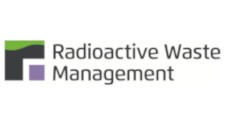
In July 2018, Radioactive Waste Management Limited (RWM) published the final report of Phase 2 of their Sealing deep site investigation boreholes project.
As part of the process to obtain permission to drill deep site investigation boreholes for a Geological Disposal Facility (GDF) for radioactive waste, RWM will be required to submit an Initial Site Evaluation (ISE) to the Environment Agency (EA). RWM expects the ISE will require it to provide a clear description, supported by reference to R&D and technology demonstrations, of how site investigation boreholes might be sealed once they are no longer required.
Over the past five years, working as part of a consortium led by Amec Foster Wheeler (now Wood) and including Bedrock Geosciences, Clay Technology, Galson Sciences, Nagra and Schlumberger, Quintessa has supported RWM in Phases 1 and 2 of their study into the sealing of deep site investigation boreholes. Within the study, the ‘borehole sealing system’ was defined as being the overall system for sealing a site investigation borehole. In most instances, the proposed borehole sealing system comprises a combination of ‘seals’ and ‘support elements’, which fill the entire borehole.
In 2014, a generic Research, Development and Demonstration (RDD) programme regarding the sealing of deep site investigation boreholes was published. Work was then undertaken to develop generic approaches to seal deep boreholes drilled as part of site investigations at a potential GDF site.
Quintessa led the development of appropriate concepts for the support elements in boreholes. Borehole support elements are required to provide suitable mechanical support for seals over extended time periods. The key requirements are that the material will not consolidate or settle over these timescales and will develop sufficient compressive strength to adequately confine overlying and underlying seals. A range of natural and engineered materials exhibit the required properties and therefore would be suitable candidate materials for support elements, e.g. cement, barite-based minerals, crushed rock, crushed rock-bentonite mixtures, bentonite-quartz mixtures and graded silica.
We developed a proposed approach for selecting the most appropriate support element material for deployment in a borehole sealing system, accounting for the environmental conditions. The approach has two steps:
- screening each candidate material against performance criteria that must be met; and
- ranking the candidate materials that pass the screening exercise
This approach was illustrated using an example based on one of the generic geological environments referred to in RWM’s generic Disposal System Safety Case (gDSSC). The selection of a support element material at a site will need to take account of site-specific and project-specific information.
RWM’s study into the sealing of deep site investigation boreholes is ongoing, with Phase 3 now underway.
